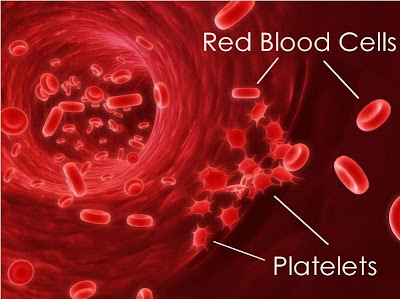Blood Platelet Donation
Alternative name: Platelet Apheresis ('plate-let ay-fer-'ee-sis) What are blood platelets? Blood platelets are irregularly-shaped, colorless bodies that are present in blood. Their sticky surface lets them, along with other substances, form clots to stop bleeding. When bleeding from a wound suddenly occurs, the platelets gather at the wound and attempt to block the blood flow. The mineral calcium, vitamin K, and a protein called fibrinogen help the platelets form a clot. A clot begins to form when the blood is exposed to air. The platelets sense the presence of air and begin to break apart. They react with the protein fibrinogen to begin forming fibrin, which resembles tiny threads. The fibrin threads then begin to form a web-like mesh that traps the blood cells within it. This mesh of blood cells hardens as it dries, forming a clot, or a scab. Who needs blood platelets? Blood platelets are needed for: Patients with clotting disorders,...
